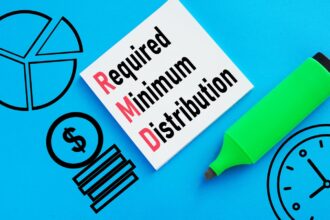While the Financial Independence, Retire Early movement is widely popular, some people plan to do the opposite, and never retire. They work because they enjoy it. Why retire at the top of your game?
The idea of working longer is becoming more common. Researchers at Pew Research Center state both the sheer numbers, as well as the percentage of older working adults is increasing. According to Pew, “Numbering roughly 11 million today, the older workforce has nearly quadrupled in size since the mid-1980s.” Pew reports, “The share of older adults holding a job today is much greater than in the mid-1980s. Some 19% of adults ages 65 and older are employed today. In 1987, only 11% of older adults were working.”
Why Are People Working Longer?
Working later in life provides a whole host of benefits besides a salary such as:
- Intellectual stimulation
- Regular social interactions
- A predictable weekly schedule
- Keeping up with technical advances
- Sharing knowledge
Here are some financial tips for people who plan to continue working:
1. Frame your goal as financial independence, not retirement.
From a financial planner’s point of view, the key to success is to plan for financial independence, not a specific retirement age. Financial independence means having assets and income streams to support your lifestyle for your lifetime. Work because you choose to, not out of necessity.
Don’t assume you will always be able to work. Financial independence means you can support yourself, in case your ability to work is curtailed due to health or other reasons, such as a job elimination.
Consider that you may change your mind. You don’t know what the future holds. So, reserve the opportunity to choose a different path.
2. Don’t delay taking Social Security benefits after age 70.
It is common for workers to delay taking Social Security benefits to pick up the estimated 8% annual benefit amount increases. While you are still working, and don’t need extra income to fund your lifestyle, you may want to delay taking your Social Security benefits past your full retirement age.
Be sure not to delay after age 70 because Social Security benefits stop increasing. Once you reach 70, there is no advantage to continuing to delay. If you don’t need Social Security income for your lifestyle expenses, you can simply invest the proceeds.
3. Be tax smart with your wages and investments.
If you have excess income, and have maxed out your 401(k) contributions, consider tax-advantaged investing. You may be able to defer more of your salary with a Nonqualified Deferred Compensation plan. Many companies offer NQDC plans to their high-income employees. If eligible, you can defer part of your salary pretax. Every plan is different. So, review the details with your company’s benefit specialist.
Choose tax-favored investments outside of your retirement plans. Interest income, such as interest from bank accounts, is taxed as ordinary income–the highest rates. Consider investments that are tax-exempt, such as tax-free municipal bonds or bond funds, or investments that pay qualified dividends, which are taxed at more favorable rates.
Discuss the ideal tax-favored investments with your tax and financial advisor especially if you are in a high marginal tax bracket.
4. Max out your Health Savings Account.
If you have a high deductible medical plan through your employer, and are not on Medicare, you may be eligible for a Health Savings Account. This account has a triple tax benefit if used for qualified medical expenses. An HSA investment is pretax, the account grows tax-deferred, and funds can be pulled out for medical expenses tax-free. In 2024, you can invest $4,150 if you have an individual health plan or $8,300 for a family plan. For workers ages 55 and older, there is an additional $1,000 catch-up contribution.
After age 65, if you end up not needing the funds for health care, you can make a penalty-free withdrawal for any reason. If the funds are not for a qualified medical expense, you simply pay taxes on the distribution. For workers older than 65, the rules for HSA eligibility and penalty-free withdrawals are complex. Be sure to consult your tax advisor.
5. Know your required minimum distribution rules.
Make sure to take your Required Minimum Distributions from your traditional IRAs or qualified retirement plans. According to the IRS, the beginning date for your required minimum distribution is April 1 of the year following the calendar year in which you reach age 73. Since the noncompliance penalty is a harsh 25%, be sure to work with your financial and/or tax advisor, so you don’t miss that deadline.
If you are still working, don’t assume you are automatically exempt. Your current employer’s plan, while you are still working, may be exempt from the RMD requirement. Be aware, your current employer’s plan is an exception. The RMD rules still apply to IRAs and former employer’s 401(k) plans, even if you are still employed.
However, be sure to check with your employer to see if your retirement plan document allows continued deferral.
Working may seem like drudgery for some people. It’s a different story when you love your work. When you are financially independent, and can choose where to spend your time, working may be just the thing you need to jump out of bed in the morning.
Why quit when you are having fun?
Read the full article here










